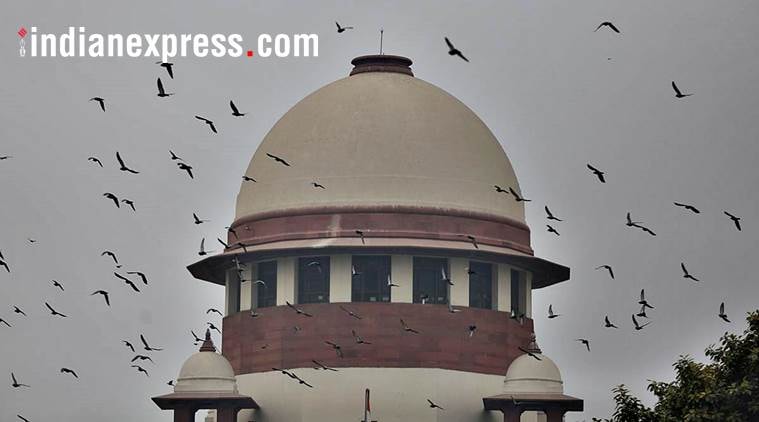 The Supreme Court of India (Express Photo by Tashi Tobgyal)
The Supreme Court of India (Express Photo by Tashi Tobgyal)
The Supreme Court on Monday refused to stay a Gujarat High Court order granting anticipatory bail to two builders booked under various provisions of the IPC and the Scheduled Caste and the Scheduled Tribes (Prevention of Atrocities) Act, 1989, for allegedly “grabbing” tribal land. Acting on a petition seeking a stay on the High Court’s March 22 order, a bench of Chief Justice Dipak Misra and Justices A M Khanwilkar and D Y Chandrachud issued notice to the accused and the Gujarat government.
Senior advocate Dushyant Dave, appearing for Arjun Sankar Bhai Rathod, said the petitioner was a tribal and the accused builders had forged power of attorneys and took away a tribal land from him. The High Court, he said, relying on a recent Supreme Court judgment, had granted anticipatory bail to the accused.
In its March 20 order, a Supreme Court bench noted instances of abuse of Act by “vested interests” and laid down safeguards, including provision for anticipatory bail, if no prima facie case was made out in cases under the SC/ST Act.
Dave said it had “completely rewritten” section 18 of the SC/ST Act that bars anticipatory bail to persons committing an offense under the Act.
He contended this order was “per incurium” (passed without due regard to the law) and overlooked another judgment passed last year by another two-judge bench. In the former case, it was laid down that “FIR is mala fide can only be raised at stage of trial and not at stage of bail.” If there was a difference, the matter should have been left to a larger bench instead of the two-judges “clarifying” the earlier order, he said.
The CJI said there were two issues before the court — cancellation of bail and illegal grant of bail. The top court did not make any observation on the March 20 order. Appearing for the builders, senior counsel Abhishek Manu Singhvi said the petitioner was “set up by rival builders” and had “filed complaint after 11 years.”